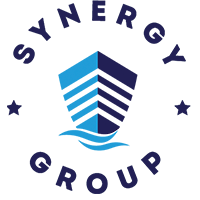I think the art and the science of the ship manager is essentially, to manage the unexpected. That’s always the biggest challenge. And we fully expect to be surprised during 2020. It’s all about how we handle the uncertainty with well-trained staff, robust systems and processes to manage risks.
IMO low sulphur regulations have been implemented. Embracing environmental sustainability is critical. Coping with the tactical challenges of scrubbers and alternate fuels will be an industry-wide challenge. Going a bit deeper, it boils down again to the quality of the workforce and the technology that one can deploy to achieve the objectives without losing the reliability of the machinery.
With fuel prices on the rise, more focus will be on optimising vessel consumptions and performance. While there has been a lot of work done, very few have been able to develop and deliver a reliable platform. The three years we spent in creating “SMARTship” has given us the edge. We have very strong partnerships in place with leading industry players to take advantage of our efforts. This year will be about finding more ways to use this platform to provide critical insights and analytics that make our ships more reliable and efficient.
LNG as a fuel has picked up. This requires the right skills and controls to be in place to operate such ships. A more significant number of a trained workforce on LNG handling and usage will be the need in the coming years.
We have serious geopolitical tensions in the Middle East and a severe upturn in pirate attacks in West Africa. These are major risks for shipping. As ship managers, the safety of our crew and fleet is, of course, paramount.
In the Middle East, in practice, this means we maximise our knowledge of risk and follow all advisories and security circulars to the letter. We seek out the best advice where we can find it. And we monitor the situation 24/7.
We also expect the unexpected from technology in 2020. It’s changing our industry faster than many predicted and that will continue. Our strategy is to future-proof. I think we can fairly say that we are now acknowledged as a lead innovator in digital shipping solutions including partnering with Alpha Ori Technologies to develop SMARTShip, an Internet of Things (IoT) platform that enables the onboard operation of multiple systems with varying degrees of autonomy. SMARTShip has already been installed on more than 40 vessels, and another 60 ships are undergoing the setup process.
I think this year we’ll also continue to see more recognition that the wellness and positive mental health of seafarers should be placed at the heart of all maritime operations. This will be a welcome step in the right direction. We launched our helpline – iCALL for seafarers – in late 2018 and, if I may take this opportunity, I would urge any seafarers to take their mental health seriously and use the helpline. We have 14 counsellors waiting to speak to them at TISS in Mumbai, India, and All the counsellors have at least a Master’s degree in Clinical or Counselling Psychology. This is a professional counselling service available free to all in English and eight other languages via phone, email and the chat-based nULTA App. Crew health and safety must be a priority in 2020 across the industry.
Predictions for what will change this year in the world of ship management and crewing?
The industry has started seeing IT as a differentiator rather than an enabler. Most companies have started work on creating or finding the right platforms. The challenge remains in trying to find ways to make the best use of technology.
We also expect companies find ways to improve the life of seafarers on board ships. Be it in providing a great environment to work and live, as well as to ensure we add most value into the lives of people who are part of our team.
Shipmanagement companies will start finding ways as to how they add value to the shipping chain rather than being just a service provider. We have seen the difference, with many large trading houses and oil majors encouraged by our approach this way. Let’s first talk about creating value for our customers, be it seafarers, ship owners, operators and other industry stakeholders, before talking on monetisation!
– Capt. Rajesh Unni.



